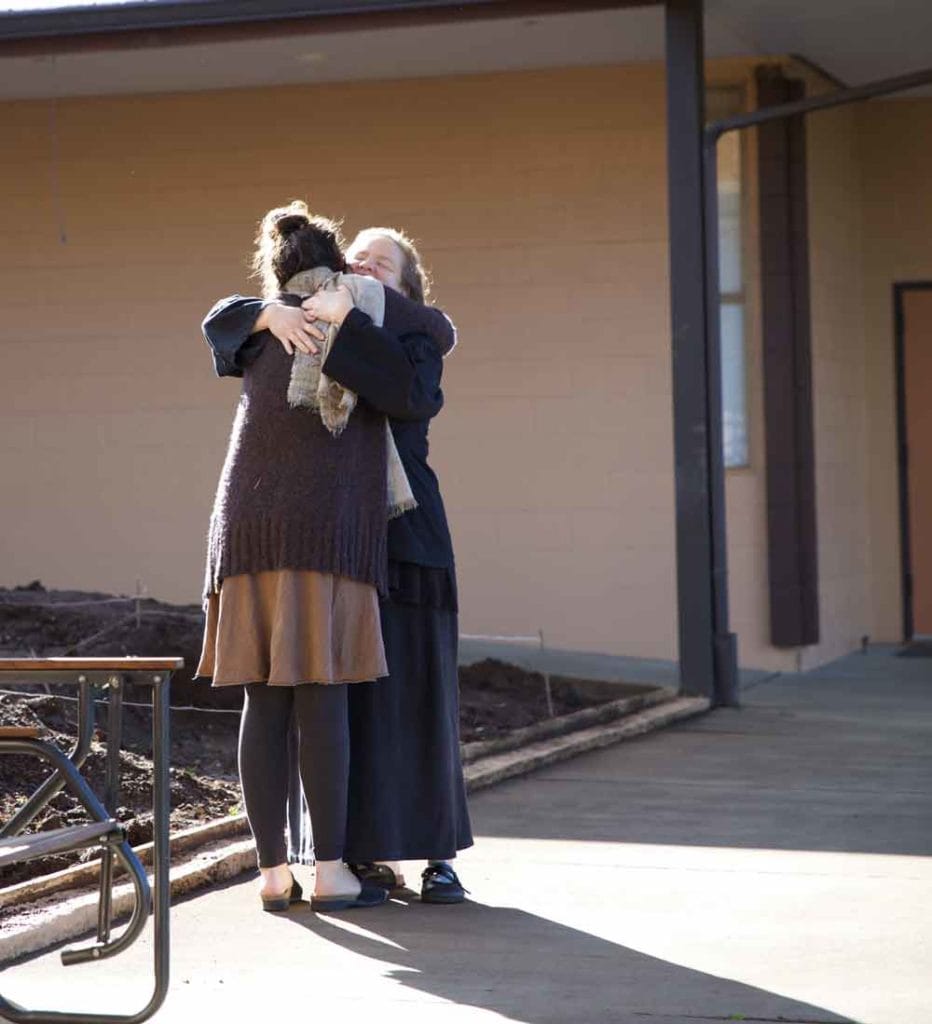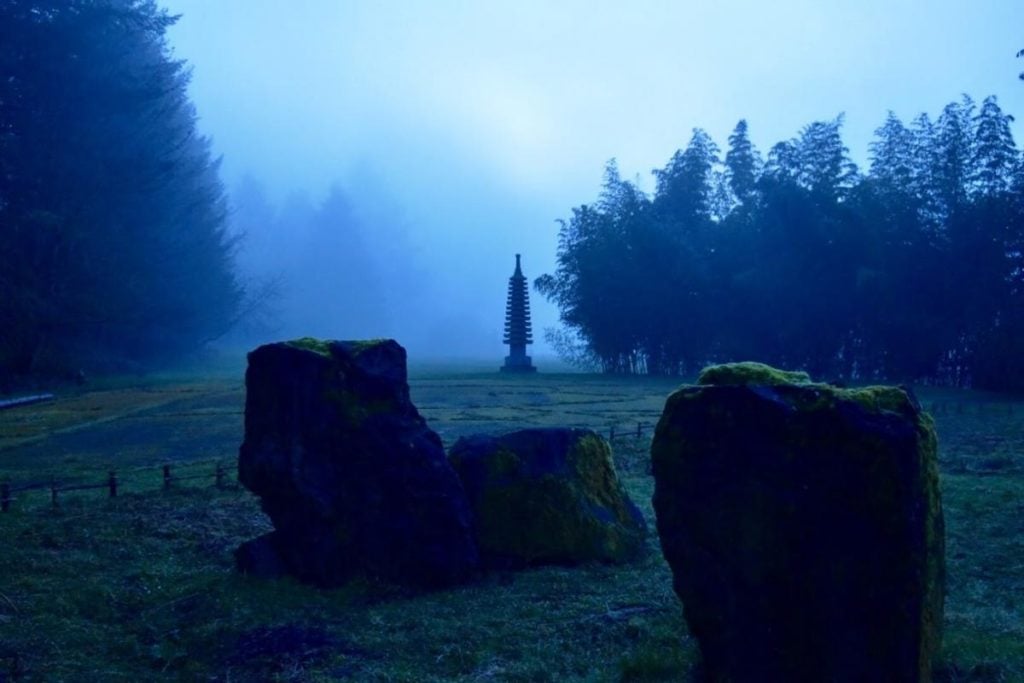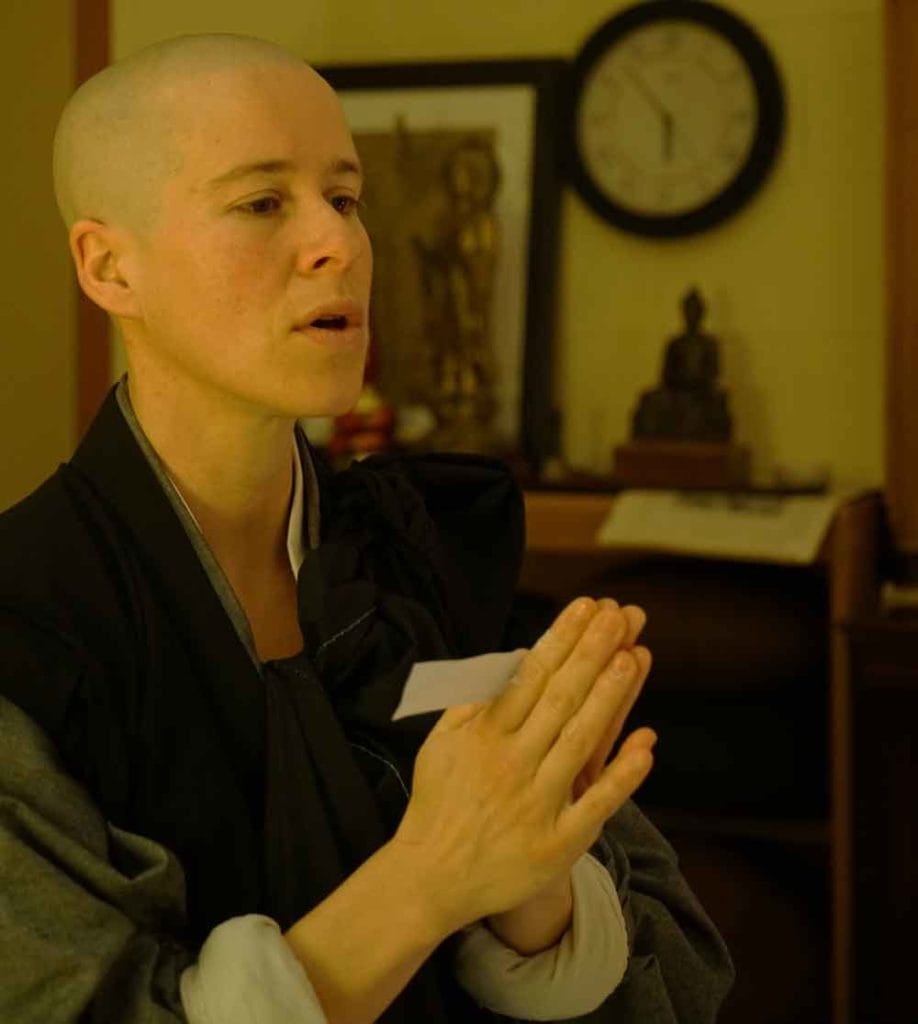In the dreamy world
Dreaming, we talk about dreams.
We seldom know
Which is, and is not, dreaming
Let us, then, dream as we must. — Ryokan
“There are Four facets of Dreamwork that are very relevant to our practice,” says Zen Teacher Seido Martin to a room full of monastery residents gathered together some more willfully then others, to investigate, encounter and illuminate the ephemeral koan of dream.

Dream as reflection of Awakening—if we are really interested in Awakening, it is imperative to study, what is dreaming? Can we see the dream of our waking hours with the same interest and mystery as our so called night dreams?
In my dream I am sitting in an empty house that is not my own. Everything is very familiar, water pours forth from the faucet when I turn the handle up. Splashing and cascading into my tea pot. There is a gentle hum of the refrigerator and the varied sounds of passing traffic.
But despite this company, I am aware that I am alone. Alone in the sense that that which is interpersonal within me, is on holiday. I have no particular obligations or plans. And the space of the house becomes the energetic experience of my body/mind. Each object from the buddha with broken bowl smiling on the table, to the curtain draped in early morning sunlight, to the soft buoyant carpet supporting and cushioning my feet, seem deeply in resonance with my being. As if we have formed a secret kinship, the deep intimacy of those that are left behind.

Dreams open the heart of compassion, they are an acknowledgement of our humanness and offer direct insight into “hidden” fears, shames, regrets. Opening into the universality of our human emotions.
In my dream I feel confused, someone is shouting but I don’t know how to respond. I feel ashamed, I didn’t mean to hurt them, but part of me did. I feel separate, I am standing in a corridor at the wedding of an acquaintance—I don’t know if I belong. I feel like I am being split in two, I don’t truly fit on either side.

Dream as koan—Looking at a dream or images within a dream, what is the laser’s edge of this dream? What is the essence? Dreams often present us with two bad options, what is the shift of consciousness being asked to move freely in this dream predicament?
In my dream I am standing on a grassy hill, I am sitting on a green sofa on one of the top floors of a 60 story building, I am wandering through the forest looking for the special place, pulled by the wind and my own intuition. And then I wake up, it is as if I have been away for millennia, there is a two-faced goat standing next to my bed. I get up the turn off the alarm, I am dizzy. I fall back into my bed. I am smaller now, about a foot in size. I try to fly, I am flapping but not getting anywhere. Someone comes and offers me a potato. I can see again.
Koans ask us to become the grassy hill. To hide in a millennia. They ask, What is the size of this dream? Show me the largest is the smallest too. Listen to the call of the breeze. See from your other face. Turn off the alarm in the other room without getting up. What is the view above all these stories?

Dream as Dharma gate of not-self —Who is dreaming? Who is the self? Dreams offer fluid and multiple perspectives on our sense of self/other.
In my dream, I can not tell if I am awake or asleep. Everything is vivid and clear. I turn my awareness to the ground of being, the placeless place where all things arise and return, pure potentiality, and rest here for a while, not needing to know.
The night dream bleeds into the day lit dream, the waking dream of what we call our ordinary life. When studied and embraced, what makes one more real then the other? Which dream is the real dream? Which dream is more valid? More honest? More true?
Every dewdrop manifested in every realm is dream. This dream is the glowing clarity of one thousand grasses. — Dogen Zenji
The practice of awakening is on-going and continuous, in this everything in our life must be included, including our night life.

As the koan says:
The nun Jingzuan asked her teacher, “What is it like after the dream?”
Great Teacher Ziyong said, “When you are in a dream, you still speak the language of dreams.”
Dream words, appear on a dream screen. Dream eyes reading dream text, dream thoughts stir through a dream mind. Dream sensations arising in a dream body.
Is it possible to say a single word outside this dream?
